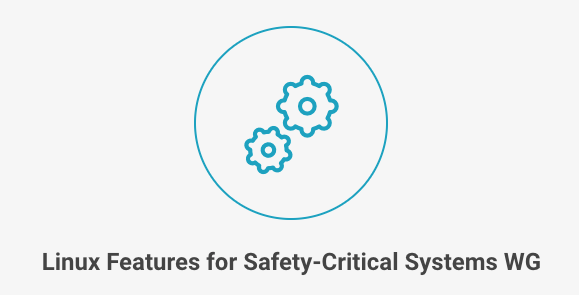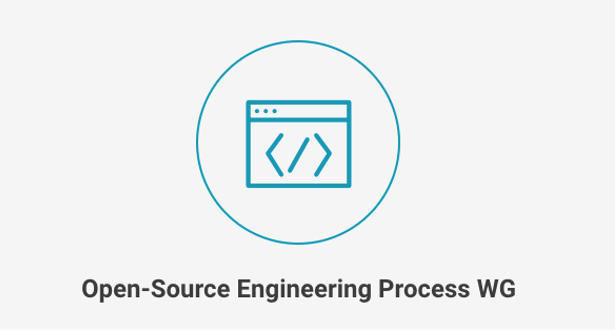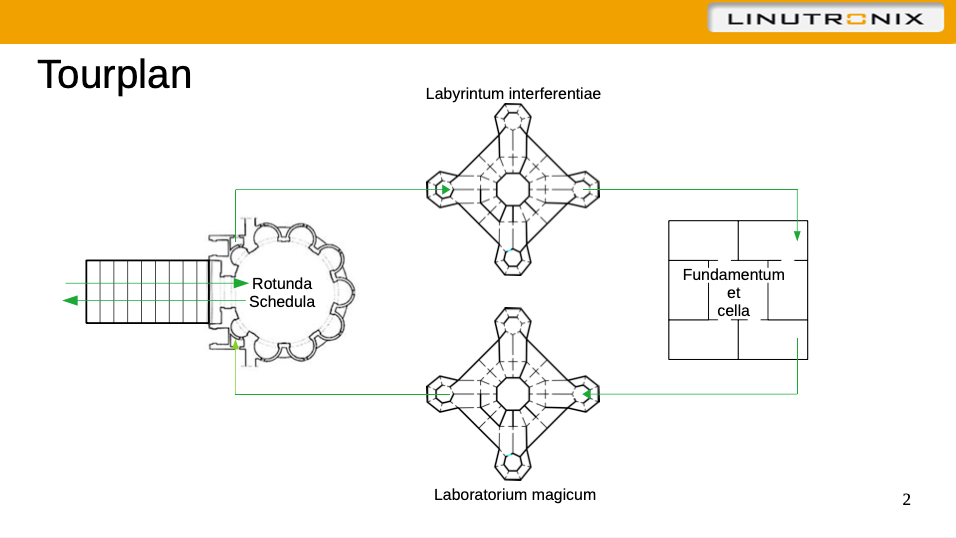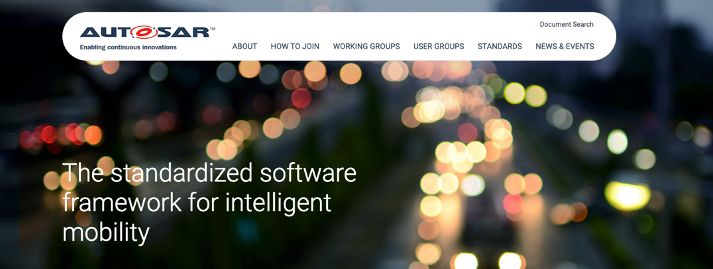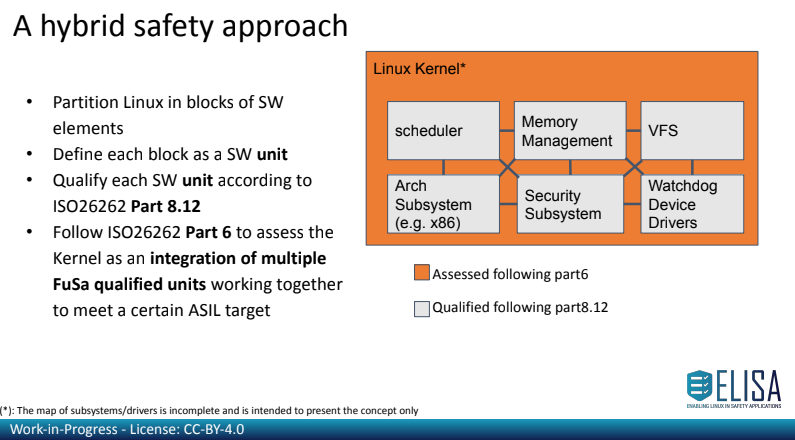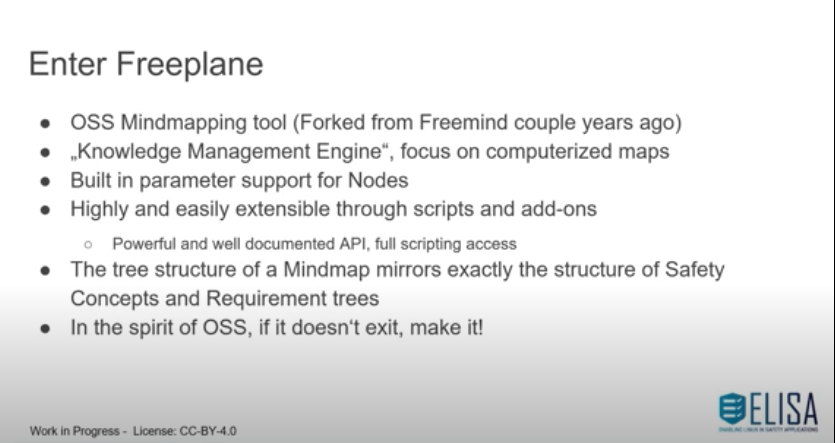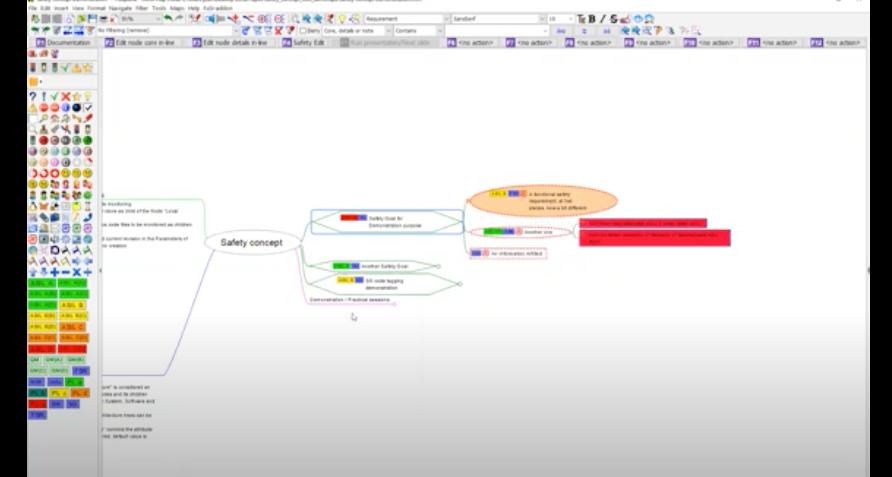Schedule for the ELISA Fall Workshop on November 8-10 is now live
SAN FRANCISCO – October 20, 2021 – Today, the ELISA (Enabling Linux in Safety Applications) Project, an open source initiative that aims to create a shared set of tools and processes to help companies build and certify Linux-based safety-critical applications and systems, announced that Red Hat has upgraded its membership to premier member and welcomes Banma, Lotus Cars and SUSE as the newest members.
Linux is used in all major industries because it can enable faster time to market for new features and take advantage of the quality of the code development processes. Launched in February 2019 by the Linux Foundation, ELISA works with Linux kernel and safety communities to agree on what should be considered when Linux is to be used in safety-critical systems.
“Linux underpins many applications today that have safety-critical and cybersecurity implications,” said Kate Stewart, Vice President of Dependable Embedded Systems at The Linux Foundation. “By collaborating together, the ELISA members are defining the best practices for use of Linux in these systems. We look forward to continuing to build consensus and welcoming expertise and collaboration from these new members.”
Attend the Fall Workshop
Since its inception, ELISA has hosted quarterly workshops that bring together project members and community contributors to discuss working group updates, trends in functional safety, use cases and more. The next workshop will be held virtually on November 8-10 and is free to attend. Speakers include thought leaders from Arm, Codethink, Elektrobit Automotive GmbH, Evidence Srl, Google, Intel, Mobileye, The Linux Foundation, Red Hat and UL LLC. Register and check out the schedule: https://events.linuxfoundation.org/elisa-workshop/.
Join the New Working Groups
Since launch, the project has worked to establish a governance model that creates processes and guidance to the focused working groups that aim to provide resources for System integrators to apply and use to analyze qualitatively and quantitatively on their systems. Today, ELISA announces two new working groups:
- Open Source Engineering Process Working Group: This working group aims to examine safety-related claims that we might like to make about Linux as part of a system, and to explore how we can gather and present evidence to support such claims.
- Linux Features for Safety-Critical Systems Working Group: This working group will work to bring together kernel developers and producers of safety critical systems to demonstrate use of such features in real systems, and to learn from these experiences together as a community. Learn more about this new working group in this November Workshop session.
Learn more about the Global Ecosystem
Red Hat, which is known for its leadership in linux and open source, joined ELISA earlier this year and has been very active in the technical community. With their upgraded membership to Premier, Red Hat welcomes Gabriele Paoloni, Open Source Community Technical Leader at Red Hat, as the ELISA Project Governing Board Chair.
“Red Hat announced our intent to expand our expertise in Linux to safety-critical automotive use cases earlier this year as we work to develop a Linux in-vehicle operating system,” said Francis Chow, vice president, In-Vehicle Operating System, Red Hat. “As such, we’re pleased to extend our participation in ELISA as a Premier member and collaborate with other industry leaders in building up open source software for applications that require extremely high levels of trust and functional safety. We believe a standardized common set of tools and processes can drive innovation toward the software-defined vehicle. ”
Additionally, ELISA welcomes Banma, a Chinese startup specializing in automotive software; Lotus Cars, a leader in automotive manufacturing in China; and SUSE, a global leader in open source software specializing in enterprise Linux, Kubernetes management, and edge solutions. These new members join ADIT, AISIN AW CO., arm, Automotive Grade Linux, BMW Car IT GmbH, Codethink, Elektrobit, Horizon Robotics, Huawei Technologies, Intel, Toyota, Kuka, Linuxtronix. Mentor, NVIDIA, Suzuki, Wind River, OTH Regensburg and Toyota.
“Compared with other open software, safety is the key differentiation of automotive OS”, said Sean Xiao, Chief Architect at Banma. “The mission of Banma is to help automotive makers deliver intelligent cars by offering advanced vehicle open software. The ELISA Project combines safety and linux, which offers flexibility and openness, and closely aligns with our goals.”
“For nearly 30 years, SUSE has been a trusted partner supporting systems and essential workloads in some of the most challenging and critical industries in terms of safety requirements, such as automotive and transportation, government, aerospace and defense, industrial and manufacturing, and healthcare,” said Ivo Totev, SUSE COO. “We already collaborate with current ELISA members on important initiatives and are pleased to join ELISA as a formal member to continue to provide innovation in safety-critical domains.”
For more information about ELISA, visit https://elisa.tech/.
About The Linux Foundation
The Linux Foundation is the organization of choice for the world’s top developers and companies to build ecosystems that accelerate open technology development and commercial adoption. Together with the worldwide open source community, it is solving the hardest technology problems by creating the largest shared technology investment in history. Founded in 2000, The Linux Foundation today provides tools, training and events to scale any open source project, which together deliver an economic impact not achievable by any one company. More information can be found at www.linuxfoundation.org.
The Linux Foundation has registered trademarks and uses trademarks. For a list of trademarks of The Linux Foundation, please see its trademark usage page: www.linuxfoundation.org/trademark-usage. Linux is a registered trademark of Linus Torvalds.
###
